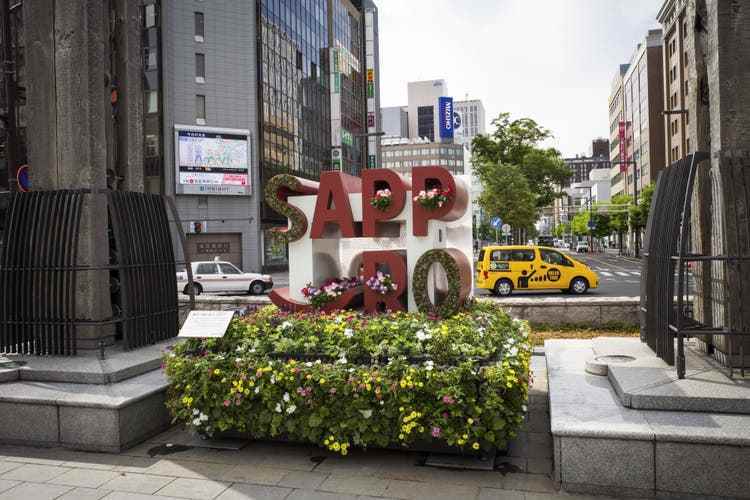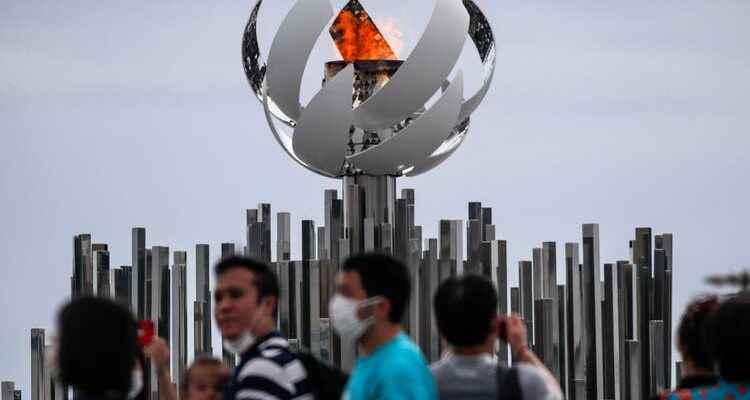The 2021 Summer Olympics will not let the organizers in Tokyo rest in 2022 either. One suspicion of corruption after another comes to light. This also jeopardizes the plan to bring the 2030 Winter Games to Sapporo.
The Olympic flame burns in Tokyo on August 8, 2021.
It’s an image we’re familiar with by now: a gentleman, mostly older, standing irritably or nervously in front of the microphone, answering questions about payment transactions that only came to light years later. The Lord affirms that he has done nothing wrong, but frequently expresses his regret for any inconvenience that may have arisen. After all, it’s about the “Tokyo 2020” Olympic Games – and they should have been the big festival for everyone in Japan.
But the impression is gradually hardening that the Tokyo Summer Games – they took place a year later than planned due to the pandemic – were a very big party, especially for a few. Again and again, high officials and sponsor representatives – who in Japan are mostly older men – are in the limelight with suspicion of corruption. At least in Tokyo, the world’s largest sporting event has revealed itself to be a swamp for corruption.
Several executives suspected of corruption have already been arrested
A leading actor who stepped in front of the microphones under pressure to justify himself this week is Tsuguhiko Kadokawa. The 79-year-old is the chairman of the major publishing house Kadokawa, which is one of the select circle of official sponsors of “Tokyo 2020”. However, the publisher could have acquired this status through unfair means. In a statement Monday, the Kadokawa boss vehemently denied this. A day later, a manager and a consultant who may have engineered a deal were arrested.
In this specific case, it is about 76 million yen (about 518,000 francs), which were apparently paid by Kadokawa to the Olympic Organizing Committee. The public prosecutor believes this to be a form of bribery, which is said to have served to make Kadokawa an official sponsor.
This not only allowed the company to advertise with the Olympic Games logo, but it also became the publication partner for publications such as guidebooks or reviews of the sporting event.
Kadokawa is not the only company against which such allegations are made. The textile manufacturer Aoki – also a well-known name in Japan – has been in the crossfire of investigators for several weeks. This is about a sum of 51 million yen (about 347,000 francs), which is said to have flowed as a bribe. Executives have also been arrested by Aoki.
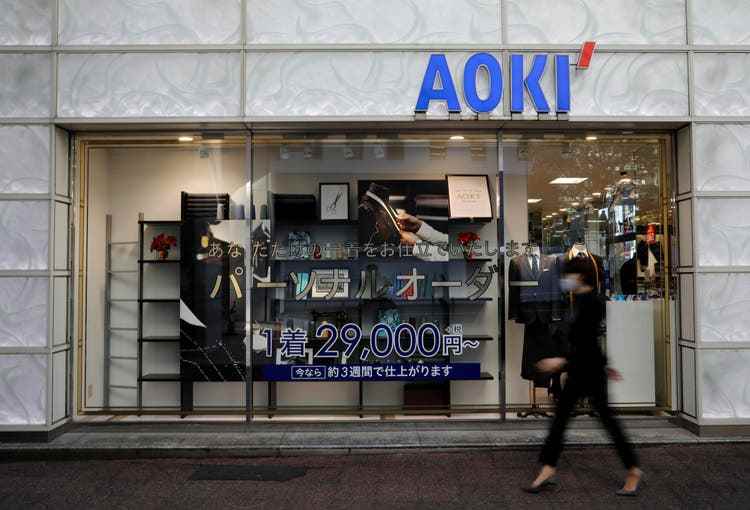
Aoki is said to have paid bribes (Picture taken on December 16, 2020 in Tokyo).
Olympic sponsor status has tremendous value for companies, both in terms of immediate and long-term brand recognition. “Being an Olympic sponsor maximizes the number of eyes that see your logo and name,” says Michael Naraine, a professor of business administration at Canada’s Brock University and an expert in sports finance. The sponsorship of major sporting events is part of a long-term strategy: companies want to appear dynamic and healthy, and want to establish themselves with the next generation of customers.
Sixty Japanese companies are paying three billion Swiss francs in sponsorship money
The organizers of the Olympic Games, on the other hand, are well aware of the value of the Olympic logo with the five rings. The income generated by the International Olympic Committee (IOC) and the respective host city through sponsorship has been growing for years. Tokyo marked a record in this respect: the more than 60 Japanese companies that advertised the Tokyo Games brought in the equivalent of around three billion Swiss francs for the organizing committee.
“Tokyo 2020” not only broke a sound barrier in terms of revenue, but also opened the door for a new form of sponsorship. Until then, Olympic organizers had only signed one official partner per branch. Instead of exclusivity, “Tokyo 2020” emphasized the patriotic and national side of the sporting event and was thus able to land several potent sponsors.
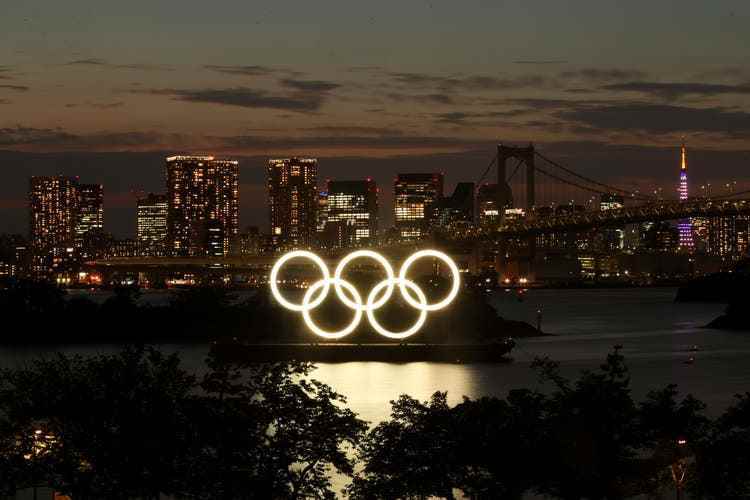
The Olympic rings will light up on a floating platform in Tokyo on June 21, 2021.
In this way, two airlines, Japan Airlines and All Nippon Airways, became sponsors, two sanitaryware manufacturers Toto and Lixil, and two banks Mizuho and SMBC. The list could go on. However, because there was still a competition for sponsor status, which may have cost up to CHF 100 million each, the organizers were able to choose between interested parties. Apparently they were persuaded with additional gifts under the table.
With this suspicion, the 78-year-old Haruyuki Takahashi in particular has made the headlines in the past few weeks. The leading member of the Tokyo organizing committee worked in marketing and had previously worked for Japan’s leading advertising agency Dentsu, which was also responsible for various deals for “Tokyo 2020”. Through his contacts at Dentsu, Takahashi has probably also won some sponsors for “Tokyo 2020” and thus probably some earnest money for himself.
Were there discounts for companies that paid bribes?
Former Japanese Prime Minister Yoshiro Mori also has to defend himself against suspicions of corruption. He was chairman of the organizing committee until early 2021, before he had to give up the post because of sexist comments. The 85-year-old Mori initially did not want to comment on the allegations. A meeting between Mori and Hironori Aoki, former boss of the textile manufacturer and Olympic sponsor Aoki, apparently took place through Takahashi’s mediation. Aoki and Takahashi were arrested in August.
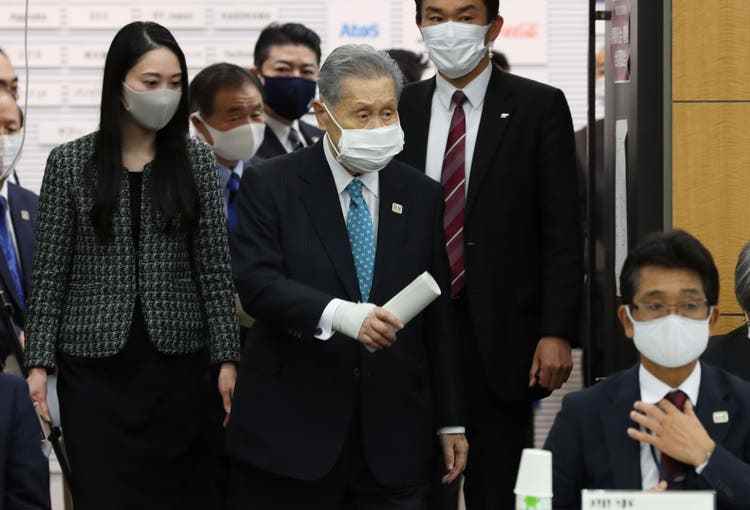
On February 12, 2021, Yoshiro Mori, former chairman of the organizing committee, announces his resignation in Tokyo.
Both were released on bail this week. The investigations continue. For example, the question arises as to why Aoki apparently only had to pay around half the usual fee for the status of Olympic sponsor. Investigators suspect that this discount is related to bribes to decision-makers.
This, in turn, is a sensitive issue among the Japanese population, who were given empty promises that the Games would cost taxpayers no money.
Because while the games actually devoured billions of francs in tax money, it now looks as if the organizers have enriched themselves by depriving the two-week event of revenue. “Tokyo 2020” were extremely unpopular games in the country itself, they were pushed through despite the pandemic and became more expensive than planned.
The bid committee of “Sapporo 2030” has canceled a meeting in Switzerland with the IOC
This is tricky in Japan looking ahead. In 2030, the city of Sapporo, located on the northern island of Hokkaido, would like to host the Winter Games. In the course of the application for the right to hold the event, officials wanted to travel to Switzerland these days to meet with the IOC. The visit was canceled without further ado.
Leading news agency Kyodo quotes a source from Sapporo’s bid committee as saying they don’t want to create any more excitement by meeting with the IOC. This project would probably also come under suspicion of corruption in public.
Because the Tokyo games might not have happened if votes had not been bought at the IOC. A separate investigation has been running for a long time, in the course of which the former Tokyo chief applicant had to resign.
